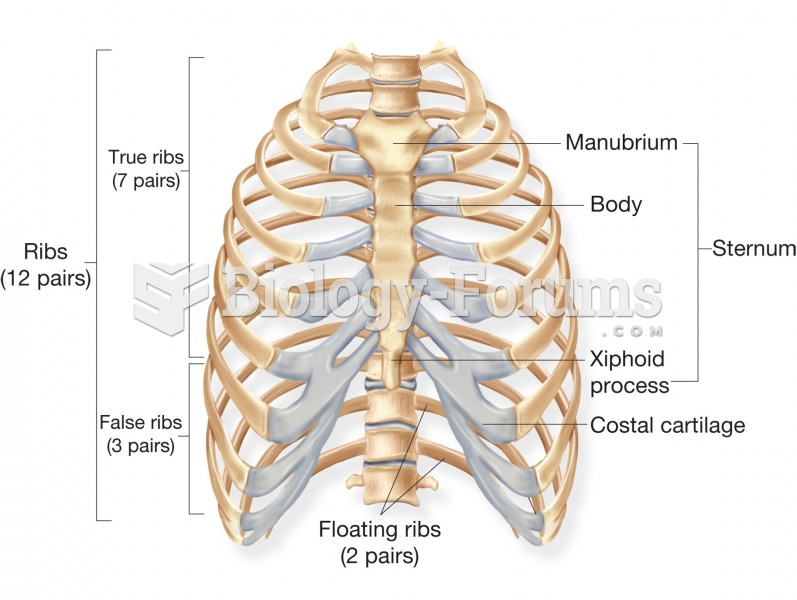|
|
|
Illicit drug use costs the United States approximately $181 billion every year.
Once thought to have neurofibromatosis, Joseph Merrick (also known as "the elephant man") is now, in retrospect, thought by clinical experts to have had Proteus syndrome. This endocrine disease causes continued and abnormal growth of the bones, muscles, skin, and so on and can become completely debilitating with severe deformities occurring anywhere on the body.
The first oncogene was discovered in 1970 and was termed SRC (pronounced "SARK").
Aspirin is the most widely used drug in the world. It has even been recognized as such by the Guinness Book of World Records.
Many medications that are used to treat infertility are injected subcutaneously. This is easy to do using the anterior abdomen as the site of injection but avoiding the area directly around the belly button.







